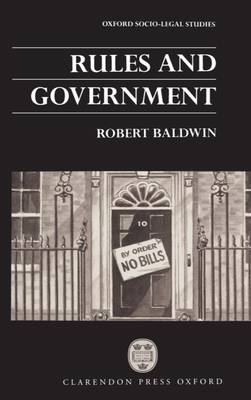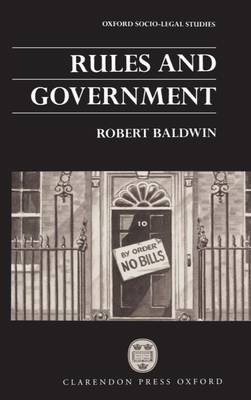
- Afhalen na 1 uur in een winkel met voorraad
- Gratis thuislevering in België vanaf € 30
- Ruim aanbod met 7 miljoen producten
- Afhalen na 1 uur in een winkel met voorraad
- Gratis thuislevering in België vanaf € 30
- Ruim aanbod met 7 miljoen producten
Zoeken
€ 70,45
+ 140 punten
Omschrijving
Rules affect all areas of governmental and public life, helping to shape policy-making and to regulate and enforce the law, particularly in matters of the environment, health, and safety. This book is the first comprehensive study of the use of non-statutory rules in government. When should government be carried out with rules? What are the alternatives to governing with rules, and are they part of 'good' governmental processes? These issues are at the heart of this book, which focuses on the potential and limitations of such non-statutory rules as codes or circulars. It examines how rule-use can be assessed, how its success can be determined, and how choices can be made between rules and alternative processes in governmental functions. Baldwin also considers the design and enforcement of rules, the role of economic analysis in rule-making, and the particular problems of governing with rules as found in the European Community. It will appeal to academics, practitioners in regularity sectors and agencies where enforcement is an issue, and civil service and private sector personnel who respond daily to rules and regulations.
Specificaties
Betrokkenen
- Auteur(s):
- Uitgeverij:
Inhoud
- Aantal bladzijden:
- 360
- Taal:
- Engels
- Reeks:
Eigenschappen
- Productcode (EAN):
- 9780198264897
- Verschijningsdatum:
- 12/06/1997
- Uitvoering:
- Paperback
- Formaat:
- Trade paperback (VS)
- Afmetingen:
- 137 mm x 219 mm
- Gewicht:
- 453 g

Alleen bij Standaard Boekhandel
+ 140 punten op je klantenkaart van Standaard Boekhandel
Beoordelingen
We publiceren alleen reviews die voldoen aan de voorwaarden voor reviews. Bekijk onze voorwaarden voor reviews.











